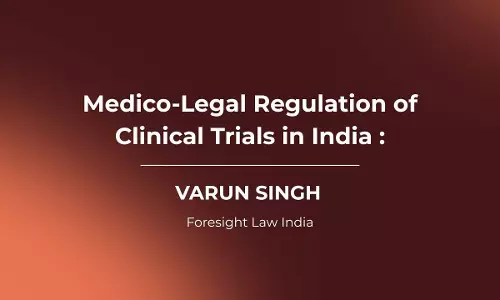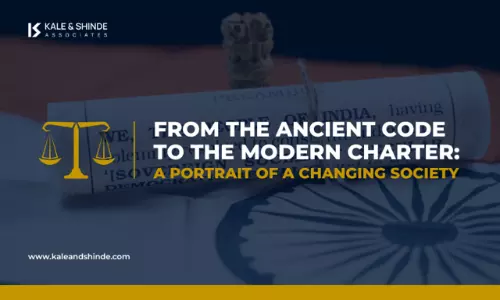Law Firm Articles
PMLA & Real Estate: Why Developers And Agents Must Rethink Compliance
The real estate industry in India has long been known for the exploitation and malpractices of the builders. With the introduction of Real Estate (Regulation and Development) Act, 2016, there has been a fair attempt to bring the real estate sector under scrutiny by imposing mandatory compliances and heavy penalties on the developers. One of the major developments in the real estate industry has been the inclusion of real estate developers, brokers and agents within the legal ambit of...
Between Articles, Agreements And Regulatory Whispers: Where Do Special Rights Truly Reside?
Some contracts are more than just commercial scaffolding, they are silent compacts of control, trust, and intention. In the corporate ecosystem, the SHA occupies this space. Negotiated in confidence but often omitted or neglected from the company's AoA, SHAs have grown to embody the aspirations of founders, the protections of investors, and the governance structures that sustain modern enterprises. Yet, their enforceability remains cloaked in tension. Can a right exist outside the...
Startups In India: Eligibility & Checklist
Traditionally, business activities were initiated through conventional forms of business, Proprietorship, Partnership, or a Limited Company. As the country matured in complexity, the Government introduced various schemes to provide incentives and encourage entrepreneurship. Banks would provide loans at lower interest rates, and regulatory compliance was relaxed. Today, there is a growing focus on and participation in the start-up ecosystem. With the growing atmosphere towards starting...
New Education Policy 2020: Effects On Legal Education In India
After decades, India, in 2020 welcomed its New Education Policy (“NEP”) which aims to bring a shift in education dispensation, especially higher education. The first NEP was introduced for India in the year 1968, then in 1986 and subsequently in 1992. With the change in society after 1992, the advancement of technology and a transformation in global education, the need for new NEP was felt to change education in India and bring it in parity with the global status. There are a few...
Medico-Legal Regulation Of Clinical Trials In India
Medico-Legal Regulation Of Clinical Trials In IndiaMedical innovation, research and development are a necessary arm for the health care sector and medical advancement helps in securing public health and also to reduce the effects of deadly diseases. What is the meaning of term “clinical trial”? Clinical Trial is a term used to define research in the field of medicine, wherein new tests and experiments are conducted with an objective of identifying its potential benefits and risks on human...
From The Ancient Code To The Modern Charter: A Portrait Of A Changing Society
Moses, Hammurabi, and Manu are considered as the 'First Lawgivers' of ancient civilisations. The Manusmriti, composed between 200 BC and 200 AD, is the text which regulated the day-to-day life of the Indian Society. Attributed to 'Manu' it laid down a strict and rigid code based on 'caste' distinctions. Moreover, the transgression of any rule laid down by it would lead to punishment which could be different according to the caste to which the 'offender' belonged. Consequently, this ...
Asset Replacement Under PMLA - M3M Builder Landmark Verdict
Prevention of Money Laundering Act, 2002 (“PMLA”) has been a law of fierce enforcement, known for its severity, rigor and stringency has been recently interpreted for an attachment of property case of Joint Director & Anr. v. Eastern Institute for Integrated Learning in Management University & Anr., by the Supreme Court, which raises eyebrows and leaves a few questions to ponder upon.The Enforcement Directorate (“ED”) provisionally attached high-value assets of M3M in a money laundering...
Governance Of Artificial Intelligence (AI) In India
The word 'intelligence' has its etymological roots in the word 'intelligere', which means “to understand”. When an individual has the ability to comprehend and engage with a particular situation, he is said to possess the required degree of 'intelligence'. This ability to deal with a given scenario could be based on a variety of factors, which may include inherent proclivities, training, tendency to deviate from established norms in light of practical difficulties, etc.The National Strategy for...
The Panoramic View Of The NSE Co-Location Case
The 'NSE co-location' case is a security market scam that surfaced owing to the courage of a whistle-blower in 2015, in which some brokers and National Stock Exchange (“NSE”) officials were involved in sabotaging the system for securing gains during the market trade. The first question which arises in this instance is – What do we mean by 'co-location' in this regard? Co-location is a service given by the NSE allowing trading members to have their own servers within the exchange's data centre,...
Damage Control: Litmus For Liquidated Damages In India
"Hope for the best and draft for the worst" is a principle on which any contract should be drafted. The Indian Contract Act, 1872 allows the parties to divide the risk and anticipate remedies for breach. Among the instruments at hand, liquidated damages act as a contractual estimate of probable loss and serve a purpose of avoiding litigation and promoting commercial certainty. The idea behind pre-estimating damages at the time of contracting is to help parties manage risk, reduce...
Labour Legislations For Women – An Encouraging Factor For Women To Work?
India is the most populous country in the world. Not only this, the demographic proportion of its population is such that the percentage of youngsters, rather, people belonging to the active work-force cover the majority portion of the pie-chart. While this sounds very promising, it also has a downside due to insufficient employment opportunities. This is where India is reduced to become a lucrative destination for cheap labor for multi-national companies. With this outset, there is another...
The DRHP Rulebook: Volume II – Our Business And Industry Overview
When the story of an IPO begins, it sprouts from context and credibility. Volume I of The DRHP Rulebook, explored the Risk Factors chapter - the issuer's structured confession of vulnerabilities and regulatory red flags. This second installment advances that journey, shifting from disclosures of risk to disclosures of reality: the Industry Overview and Our Business chapters.These twin chapters don't just describe, they define. The former maps the issuer's external ecosystem; the latter, the...














